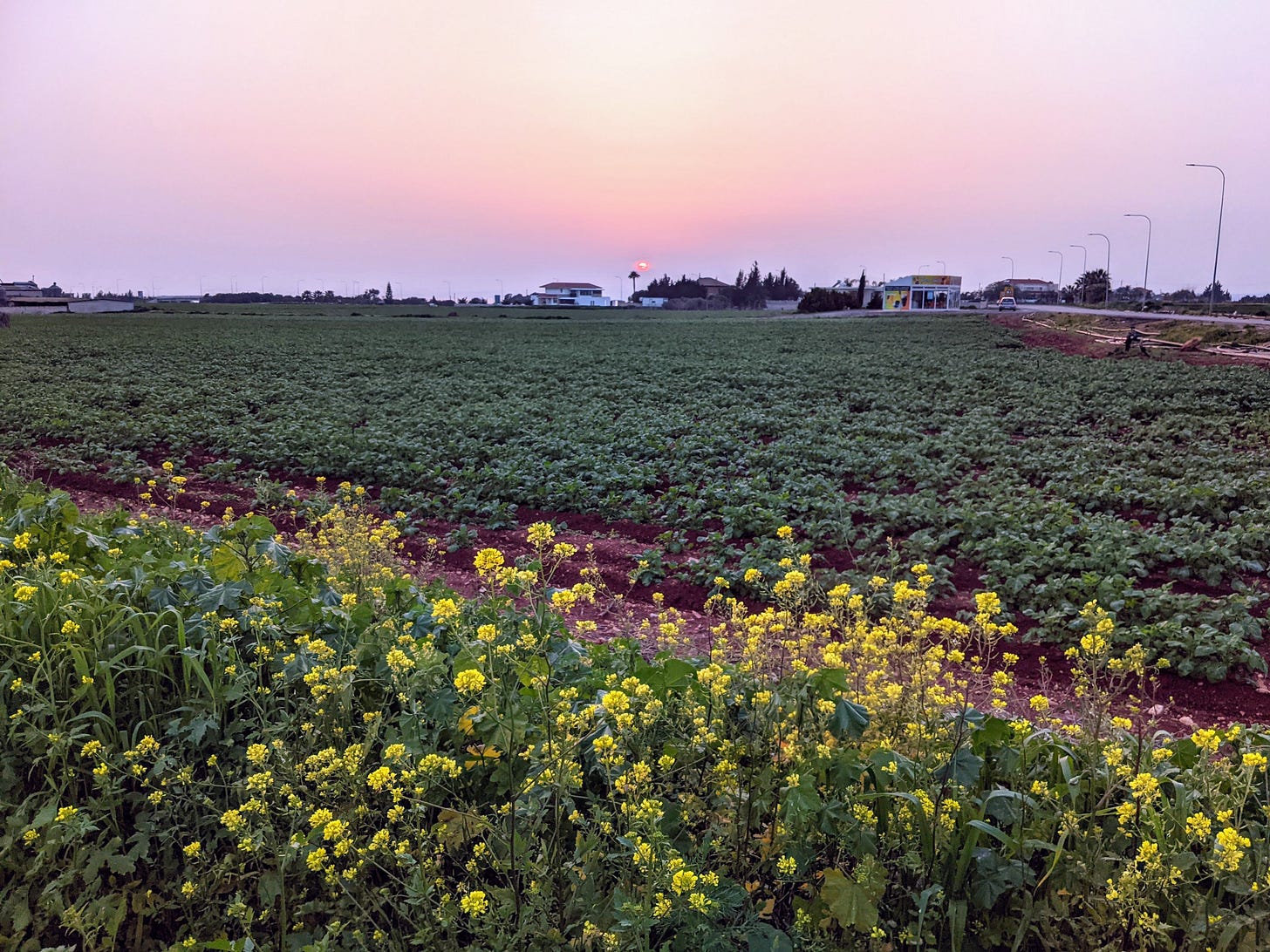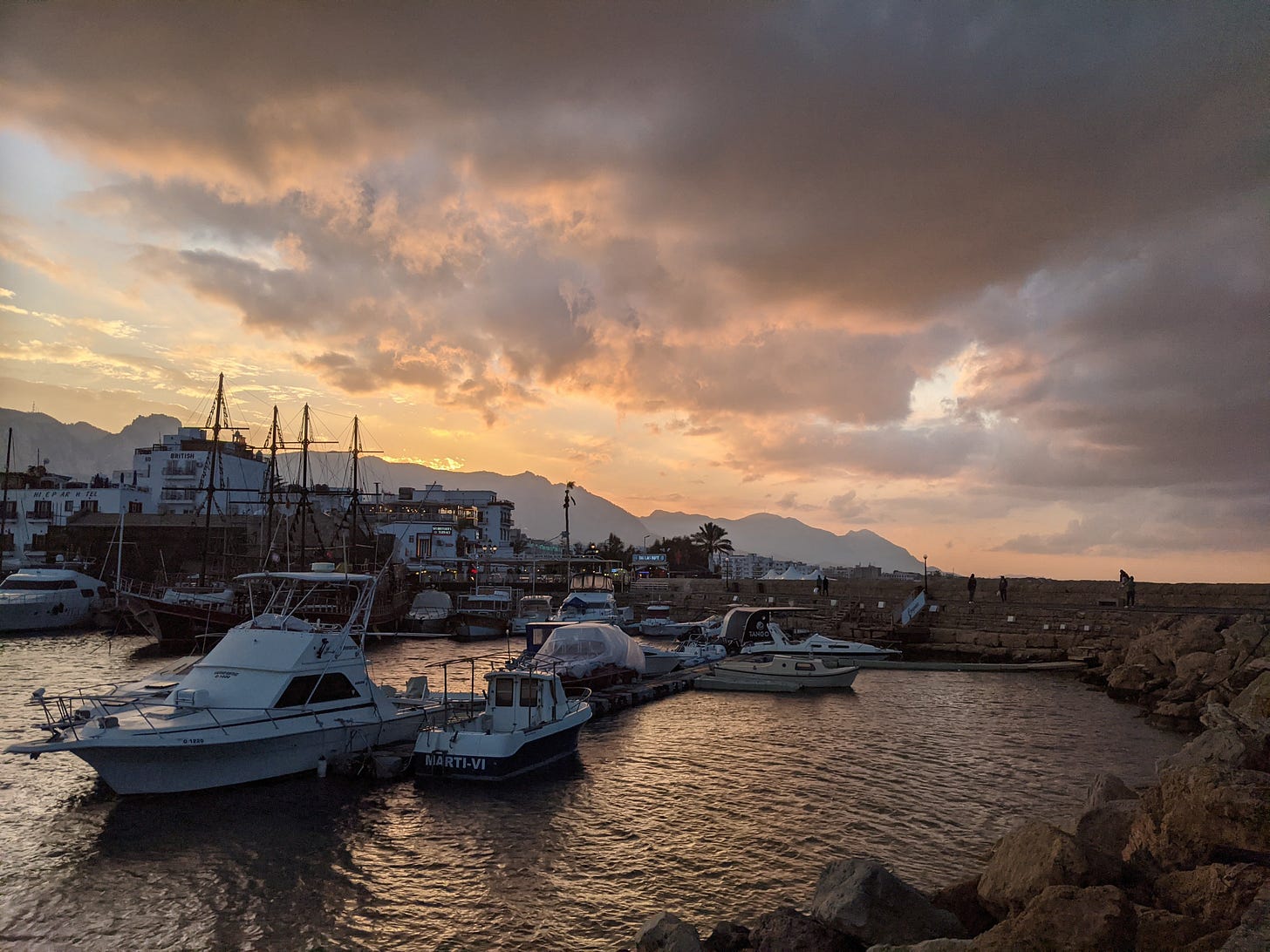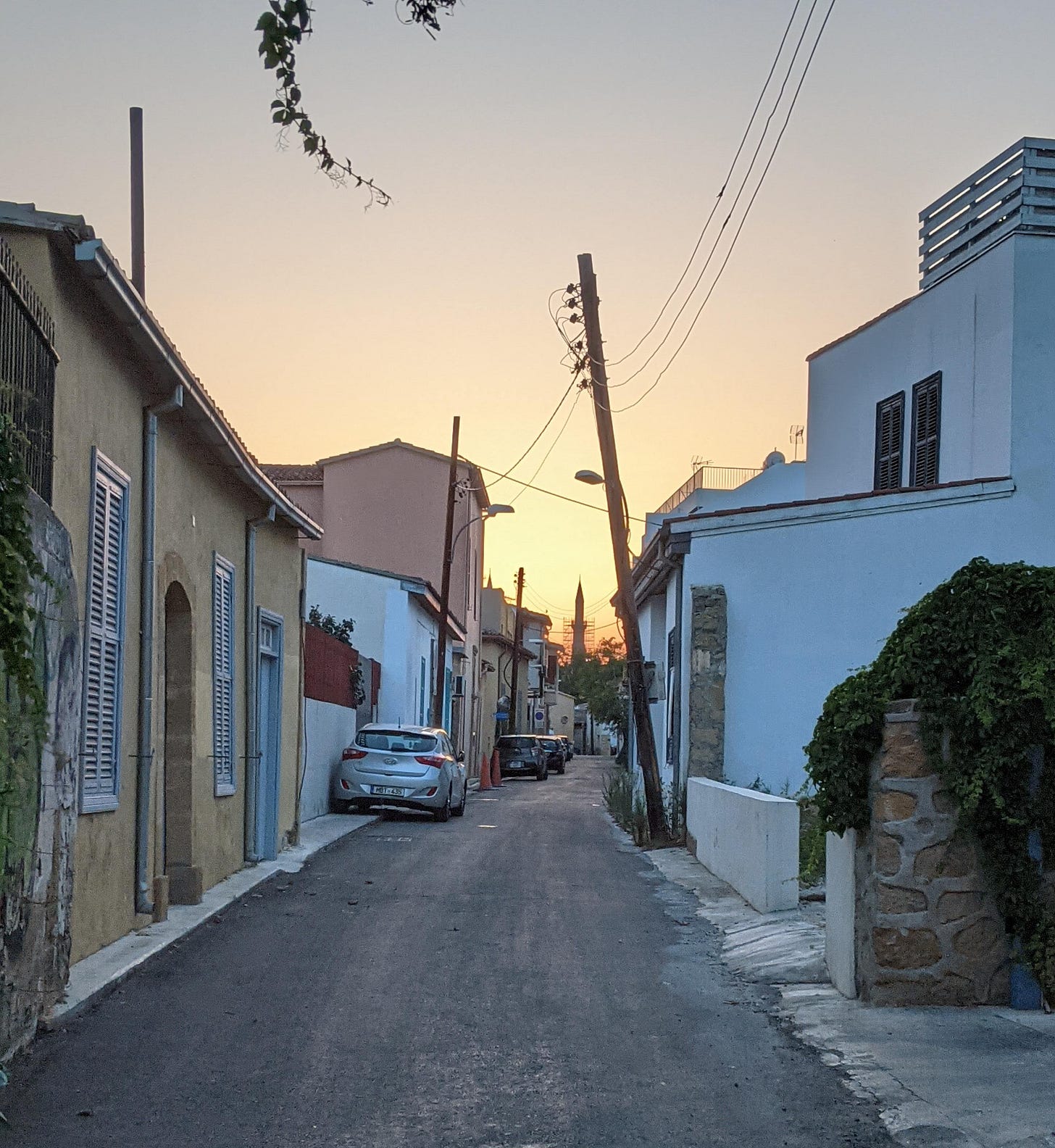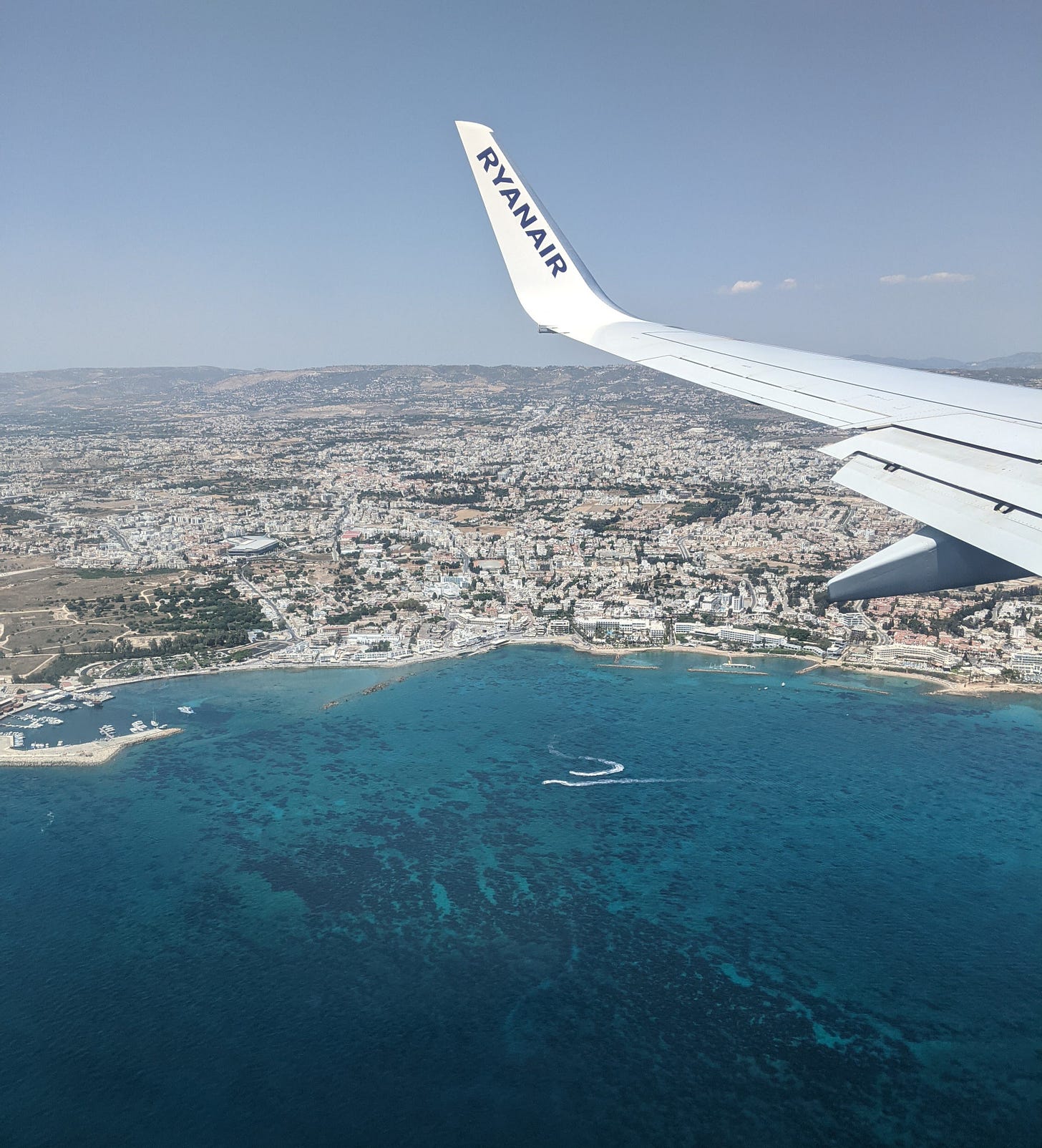(Not) the end of all our exploring
Reflections on an unexpected and extraordinary year in Cyprus
It was a miracle it happened at all. A year on a fascinating and amazing island in the Eastern Mediterranean, amidst another wave of the interminable global pandemic and a major war on the European continent.
As of this writing, it’s now been a week since I returned from my year abroad in Cyprus. Now that I’ve had some to reflect, this post will seek to tie up some loose ends and put them all into perspective. And while I still have a few posts teed up for The Cyprus Files over the next few months, this post will serve as the spiritual and thematic finale to an extraordinary year abroad.
The long road to Cyprus
My journey to Cyprus actually started ten years ago. When I started at Princeton, I applied to take a geology course that involved research in the Troödos, and I applied for my first passport, with my theoretical destination—Cyprus.
I wasn’t accepted into the class, but over the course of my studies, one of my modern Greek instructors was Cypriot, and he took the above photo of me during an event at the Princeton University Art Museum. I was pointing out the island of Aphrodite.
Little did I know that several years later, I’d get to know Cyprus better than most of the other places in which I’ve had the opportunity to live.
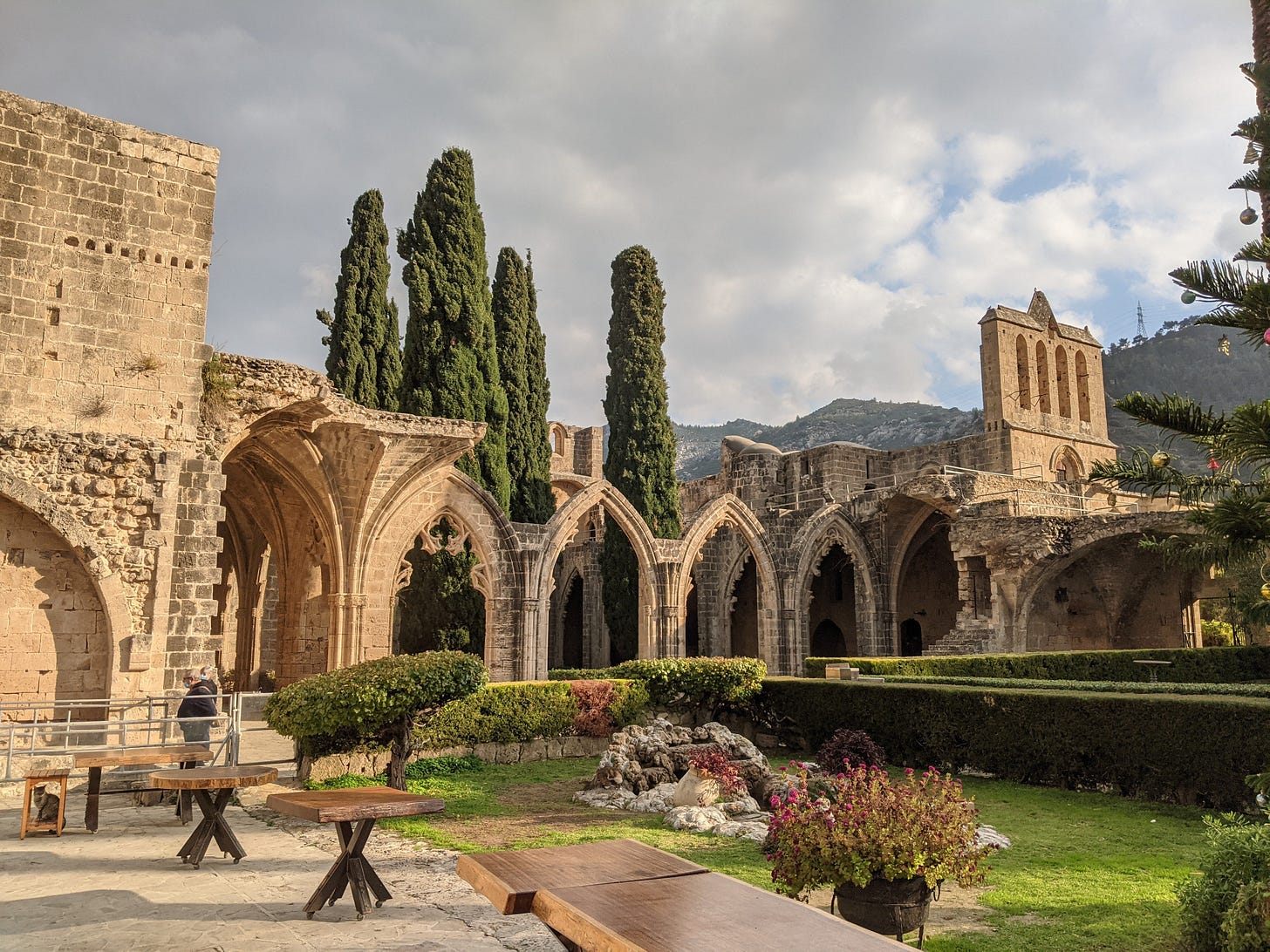
A year to remember
What happened this year? I saw the Pope. I learned to drive on the left side of the road. I co-organized two writing workshops in the UN Buffer Zone. I gave two lectures, one at a museum. I published a little book. I felt a couple of earthquakes. I went skiing. I went to the beach a lot. I saw far more heritage places of worship than I could ever count.
In the service of my research project on the recent history of Cypriot cities, I interviewed about sixty people and examined archival materials at the Press Information Office, the Centre for Visual Arts Research, and the Cyprus American Archaeological Research Institute.
At times it was hard. In the winter, it got cold, and wet, and the Omicron surge made things difficult. The Mediterranean has a different pace, and it can take a while to set up meetings, to make connections, to hit your stride and get going. And once you do get going, it’s time to leave.
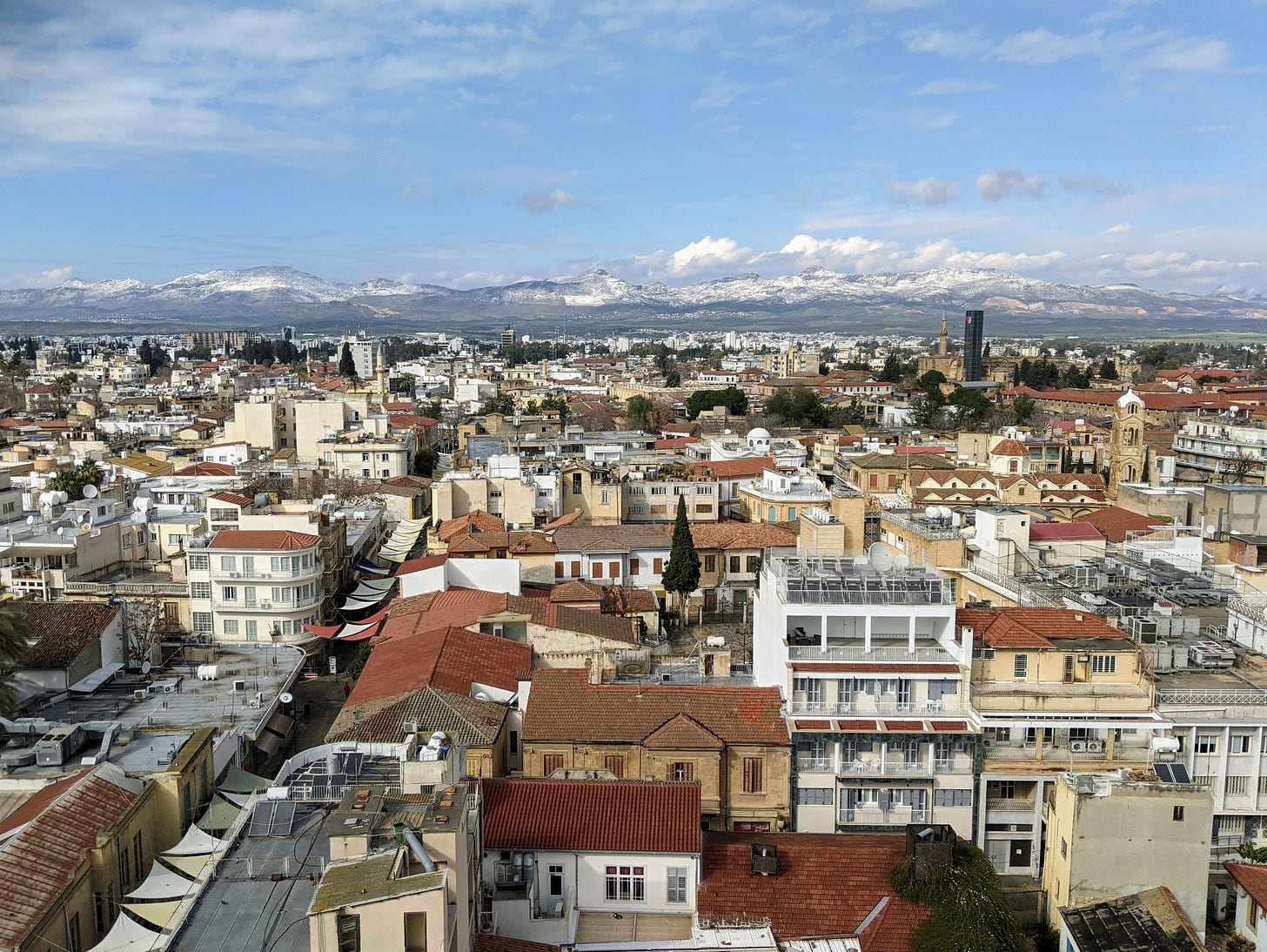
The Kafkaesque finale
I wanted to pick up one of the threads of last year and describe the sequel of my previous post written in October 2021, “Kafka on the Shore.” One of the most long-running procedural dramas during the run-up to my grant period and throughout my time in Cyprus was in receiving my research visa.
After all the background checks, apostillations, chest x-rays, and other medical tests, I still hadn’t received my Cypriot ID card that would function as my “green card.” Though I had a “yellow slip” that functioned as a temporary residence permit, it was far from the bureaucratic stability I desired.
Though I hadn’t received any notification from the Migration office, in May I decided enough was enough, and went there anyway. I walked through the door and approached a desk, labeled VISA CARDS. I showed the woman behind the desk my passport. She told me to follow her. In another room, she opened a drawer—in which could be found thousands of unclaimed identification cards.
I could not help but barely hold in my laughter. So much effort—for a process as absurd as this?
I signed a form and received my ID. Then I left—finally armed with the identity card that would only help me out for another three weeks.

A burst of gratitude
I am grateful to all the people who helped me get here, and all the people who helped me get set up once I arrived. I am grateful for all their support and the welcoming quality of the Cypriot community which made my year so special. Here are some of the people I am grateful for:
My recommenders from my various Fulbright applications—through each individual effort, for each application, all helped me get to where I am today.
I am thankful for my fellow Fulbrighters, and the Fulbrighters who came before me who helped me find the way.
The welcoming community at The Cyprus Institute, and of course my sponsor Dr. Nikolas Bakirtzis.
The wonderful community who helped me find a house, a car, and all the tricky utility questions.
All my Greek teachers over the years—especially the Institute for Balkan Studies’ International Summer School for Greek Language, History and Culture, with whom I studied in August 2021 thanks to a generous scholarship from the Greek Ministry of Culture and Sports.
My Turkish teacher and class community at the Home for Cooperation.
I am grateful for the support of the Fulbright Program, the US Embassy in Cyprus, and to have been able to work with Phaneromenis70, the Centre for Visual Arts Research, and the Home for Cooperation.
A journalist in a new land needs some “fixers,” and I am glad that I found great points of contact in Nicosia, Limassol, Larnaca, and Famagusta.
The shape of things to come
In 1943, T. S. Eliot wrote an-oft quoted poem called “Little Gidding,” of which a stanza goes like this:
We shall not cease from exploration
And the end of all our exploring
Will be to arrive where we started
And know the place for the first time.
Though this poem may be more than a little pretentious, and it may be the end of the Cyprus-living phase of my blog project The Cyprus Files, I’m not done writing about Cyprus—this is not the end of my “exploring.” My book project about Cypriot cities in the 21st century is ongoing, and some shorter articles and essays related to this research are in the works.
I still hope to write a few more Cyprus-related posts for the blog, such as a four-part series on the history of the complicated city of Famagusta, but these will come out on a more relaxed and spaced-out timeline.
That goes without saying that I hope to continue to have a research interest in Cyprus going forward, that the exchange will not end here.
I also have a new series of posts planned, describing aspects of my extracurricular travel to important architectural monuments outside of Cyprus, so stay tuned.
In the meantime, The Usonian will be taking a few weeks off and return sometime in August, in the process scaling back to its original twice-a-month schedule, and resuming its original content scope regarding storytelling and design.
The farewell
Now I have returned to my home country, a nation in political, social, and economic tumult. It may be strange to say that a de facto divided nation mired in an unresolved conflict feels safer and more stable than the current status of the United States, but that’s the truth.
In the conclusion to Patricia Storace’s 1996 memoir, Dinner with Persephone, about a year she spent in Greece, the poet described her departure from Athens:
I made myself look out the window as the plane took off, leaping over the cliffs and the Aegean Sea like a champion horse clearing a jump, as we moved away from the adamantine glitter of the sun on the white buildings and the Saronic Gulf to skies of a more diaphanous blue, the plane ascending delicately, securely, as if on a current of breath, a breath calibrated with precisely enough force to blow a candle out.
Cyprus is not Greece, but the magic of the place has its own particular allure. And so as my American Airlines flight, operated by British Airways, lifted off from Larnaca Airport, I contemplated all the ground I’d covered, all the people I’d met, all the stories I’d heard, from so many different communities on the island—Greek Cypriot, Turkish Cypriot, and so many others. And I smiled.
Even a small island contains multitudes.
This is the twenty-sixth edition and (if not the final, a post of finality) in The Cyprus Files, a limited-run newsletter series from The Usonian chronicling my Fulbright experiences in Cyprus. You can read all the posts in The Cyprus Files here. Thanks for reading, and if you haven’t subscribed to The Usonian to read about storytelling and design from the edge, please consider joining the list.


